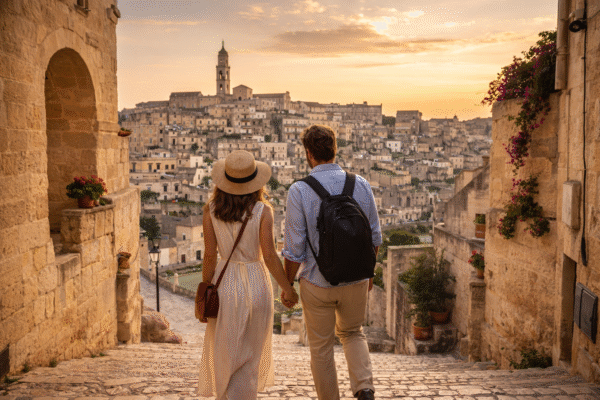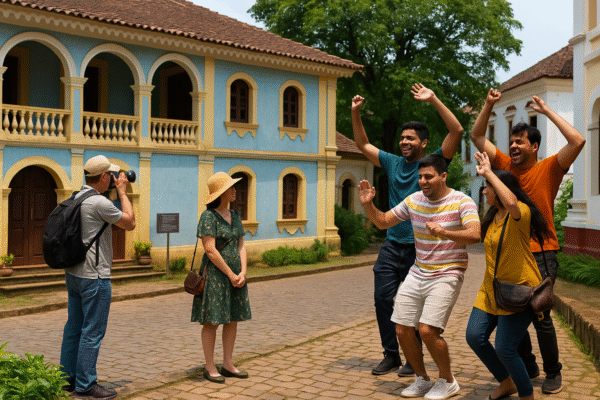How Dehatism Is Damaging Global Tourism: Goa, Switzerland, Dubai, and Other Destinations Push Back
Tourism has long served as a powerful driver of economic growth, cultural exchange, and global connection. Yet, an increasingly disruptive trend—commonly referred to as “dehatism”—is casting a shadow over this vibrant industry. From the colorful Latin quarters of Goa to the serene Swiss Alps and Dubai’s towering Burj Khalifa, a new wave of inconsiderate tourist behavior is reshaping how locals and governments manage global visitors.
What Is Dehatism?
“Dehatism” is an informal term derived from the Hindi word “dehat,” meaning rustic or unsophisticated. It has evolved into a label for culturally inappropriate, loud, or offensive conduct exhibited by some tourists—often those who may be well-traveled but lack sensitivity toward the destinations they visit. This behavior includes public disorder, disrespect for cultural norms, and an obsession with social media-driven experiences, often at the cost of local peace and heritage.
This issue has become glaring in Goa, where neighborhoods like Fontainhas—a UNESCO-listed Latin quarter—have experienced an influx of tourists prioritizing selfies over respecting the privacy of residents. Similar scenes have unfolded in Switzerland, where tourists have disrupted tranquil towns by dancing shirtless in public squares to blaring music, often to the dismay of locals and fellow visitors.
Cultural Disruption and Loss of Local Identity
The cultural impact of dehatism is severe. In India’s Goa, once a Portuguese colony known for its architecture and laid-back charm, locals now voice concerns over the invasion of their daily lives. Residents of Fontainhas, for instance, have repeatedly appealed to state tourism authorities for stricter control over intrusive tourist behavior.
According to Goa’s Department of Tourism, such conduct not only affects the community’s quality of life but also dilutes the authenticity that draws responsible travelers in the first place. In Switzerland, local councils in Lucerne and Interlaken have raised similar alarms. Efforts are underway to educate tourists through signage and community engagement campaigns, reminding them of the need to respect public decorum and local traditions.
Destinations Under Pressure
Dubai has also faced instances of dehatism. A viral incident saw a group of tourists dancing loudly to Gujarati music at the observation deck of the Burj Khalifa, creating a public disturbance and attracting criticism. While Dubai is known for its luxury tourism and cosmopolitan culture, local tourism officials have since emphasized etiquette awareness in visitor information materials.
Beyond individual discomfort, these incidents accumulate reputational damage for destinations globally. With real-time sharing on social media platforms and review websites like TripAdvisor, a single viral moment of cultural disrespect can dissuade future tourists seeking tranquility or authenticity.
Economic Fallout of Irresponsible Tourism
According to the United Nations World Tourism Organization (UNWTO), global tourism accounts for over 10% of global GDP. In India alone, tourism contributed 9.2% to the national GDP in 2023, based on Ministry of Tourism figures. Yet, the economic boon can quickly reverse when destinations become associated with negative tourist behavior.
Local businesses—from hospitality providers to retail vendors—suffer when tourists seek quieter, more respectful alternatives. In Switzerland, surveys by the Swiss Tourism Federation indicate that many repeat European visitors are now opting for lesser-known Alpine towns due to overcrowding and public disorder in popular hotspots.
Meanwhile, in Goa, hospitality stakeholders are urging the state government to implement behavior guidelines similar to those in international destinations. “It’s not about banning tourists—it’s about ensuring they engage with the destination respectfully,” said a spokesperson from the Travel and Tourism Association of Goa (TTAG).
Rise of Tourism Regulations
To curb the spread of dehatism, destinations are adopting new regulatory approaches. Goa has begun restricting vehicular access in heritage districts like Fontainhas during peak hours and has proposed cultural orientation sessions for tourist groups. Switzerland, known for its liberal yet orderly tourism model, is considering fines for unruly conduct in high-traffic areas.
Even global hubs like Dubai are introducing stricter policies. Tourists now face clearer codes of conduct in major public attractions, and security enforcement has been increased around high-traffic spots such as the Dubai Mall and Burj Khalifa precinct.
While these regulations are necessary, there is concern that excessive enforcement could hinder the free-flowing joy of travel. The challenge lies in balancing open tourism with preservation of culture and community.
A Global Call for Responsible Travel
The tourism industry is increasingly recognizing the need for awareness-driven travel experiences. Campaigns like “Travel Responsibly” by the Ministry of Tourism in India and Switzerland’s “Respect Nature” initiative are leading the way. These programs encourage visitors to embrace local customs, minimize environmental impact, and respect local communities.
Experts argue that influencers and travel vloggers have a responsibility to promote culturally respectful behavior. “The way people behave in a destination is being shaped by what they see online,” says Dr. Rohan Verma, a tourism researcher with the Indian Institute of Travel and Tourism Management (IITTM). “If we normalize rowdy or disrespectful behavior, we risk transforming the industry into something exploitative rather than educational.”
Conclusion: The Future of Cultural Tourism Depends on Us
If left unchecked, dehatism threatens to erode the soul of tourism—transforming rich cultural hubs into chaotic selfie backdrops. Destinations across the globe, from Goa and Dubai to the Swiss Alps, are urging travelers to embrace a more respectful and meaningful mode of exploration.
As the world recovers and rebuilds post-pandemic tourism, it’s time for tourists, influencers, and authorities to come together in preserving the very magic of travel: connection, respect, and shared humanity.
For more travel news like this, keep reading Global Travel Wire



















